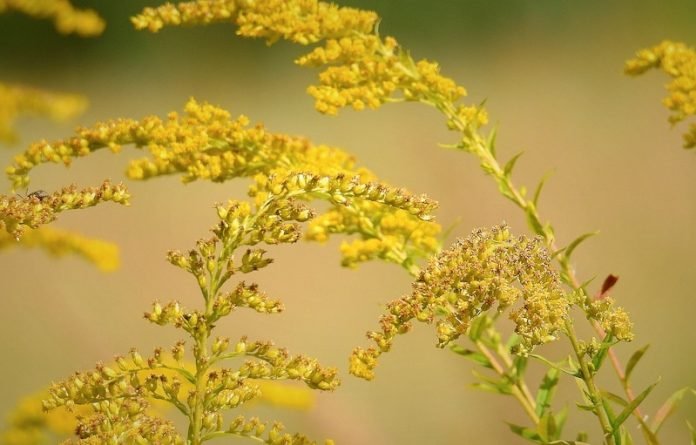
In a study from Emory University, scientists found two common wild plants contain extracts that inhibit the ability of the virus that causes COVID-19 to infect living cells.
This is the first major screening of botanical extracts to search for potency against the SARS-CoV-2 virus.
In laboratory tests, the team found extracts from the flowers of tall goldenrod (Solidago altissima) and the rhizomes of the eagle fern (Pteridium aquilinum) each blocked SARS-CoV-2 from entering human cells.
The active compounds are only present in miniscule quantities in the plants.
It would be ineffective, and potentially dangerous, for people to attempt to treat themselves with them, the researchers stress.
In previous research to identify potential molecules for the treatment of drug-resistant bacterial infections, the team focused on plants that traditional people had used to treat skin inflammation.
Given that COVID-19 is a newly emerged disease, the researchers took a broader approach.
They used a method to rapidly test more than 1,800 extracts and 18 compounds from the Quave Natural Product Library for activity against SARS-CoV-2.
The researchers conducted experiments with virus-like particles, or VLPs, of SARS-CoV-2, and cells programmed to overexpress ACE2 on their surface.
They identified a handful of hits for extracts that protected against viral entry and then homed in on the ones showing the strongest activity: Tall goldenrod and eagle fern.
Both plant species are native to North America and are known for traditional medicinal uses by Native Americans.
Additional experiments showed that the protective power of the plant extracts worked across four variants of SARS-CoV-2: alpha, theta, delta and gamma.
The team then tested the two plant extracts in experiments using infectious SARS-CoV-2 virus.
The results confirmed the ability of the tall goldenrod and eagle fern extracts to inhibit the ability of SARS-CoV-2 to bind to a living cell and infect it.
As a next step, the researchers are working to determine the exact mechanism that enables the two plant extracts to block binding to ACE2 proteins.
If you care about COVID, please read studies about Vitamin D deficiency linked to severe COVID-19, and low-sodium plant-based diets may prevent COVID-19 better.
For more information about COVID, please see recent studies that new antiviral drug may block COVID-19 transmission, and results showing this existing drug can save damaged lungs in COVID-19.
The study was conducted by Cassandra Quave et al and published in Scientific Reports.
Copyright © 2023 Knowridge Science Report. All rights reserved.



